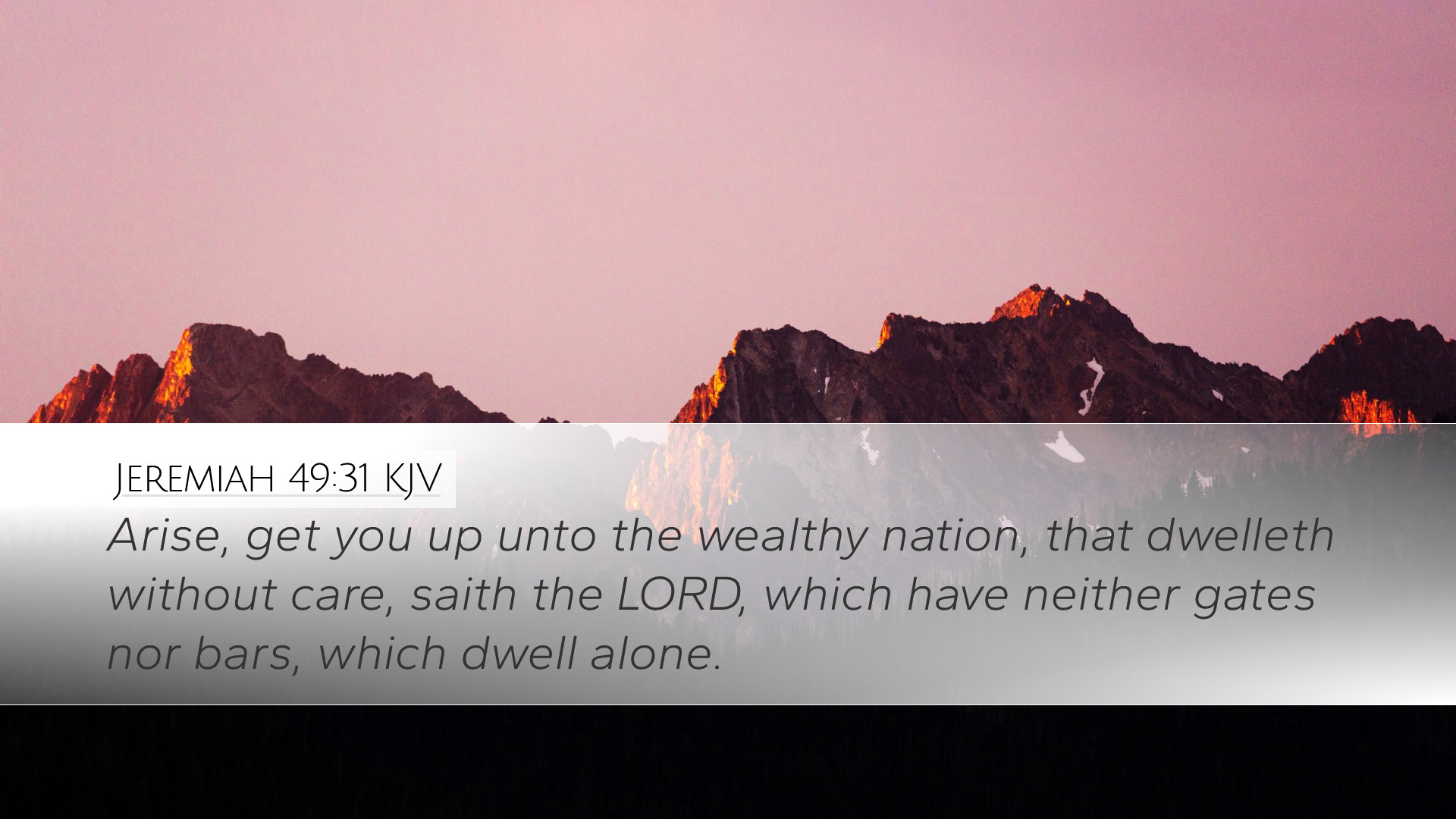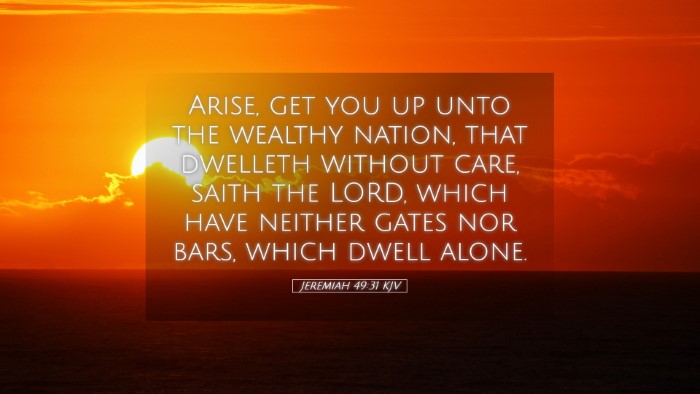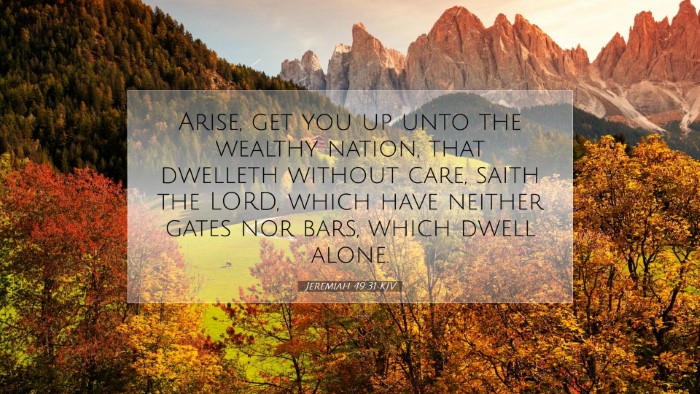Commentary on Jeremiah 49:31
Jeremiah 49:31 states:
"Arise, get you up unto the wealthy nation, that dwelleth without care, saith the Lord; which have neither gates nor bars, which dwell alone." (KJV)
Introduction
The verse from Jeremiah speaks to the judgment and prophecy concerning the nation of Elam, delineating its future and destruction. Various public domain commentaries provide insights into the implications of this passage, shedding light on its historical context, theological significance, and application for contemporary readers.
Historical Context
Jeremiah prophesied during a tumultuous period in Israel's history, characterized by the impending Babylonian captivity. Elam, located to the east of Israel, was known for its riches and a sense of security stemming from its geographical advantages.
Wealthy Nation
Albert Barnes notes that the term "wealthy nation" refers to Elam's affluence and independence. Its prosperity, however, is depicted as a false sense of security. The absence of "gates nor bars" symbolizes a lack of preparation for impending doom and highlights the vulnerability that often accompanies national pride.
Divine Command
Matthew Henry emphasizes the urgency in God's command to "Arise, get you up." This call signifies the divine directive for the nation to mobilize against an opposing force, underlining that their carelessness may lead to their downfall.
Interpretation of "Without Care"
The phrase "dwelleth without care" indicates a state of complacency and self-satisfaction, as described by Adam Clarke. Elam's inhabitants were secure in their riches and strength, which led to moral and spiritual laxity, making them ripe for judgment.
Complacency and Consequences
Clarke elaborates on this theme by explaining that such complacency often precedes destruction. Historical instances demonstrate that nations or individuals who foster a sense of invulnerability are typically unprepared for God's judgment. In this light, churches and communities are reminded to remain vigilant and humble.
Theological Significance
The implications of this verse extend beyond its historical context; they offer profound lessons about reliance on God versus dependence on worldly security. Matthew Henry posits that this passage acts as a reminder to believers about the transient nature of material wealth.
Divine Sovereignty
God’s sovereignty is a central theme. The contrast between a wealthy nation and the sovereign command of the Lord illustrates how human strength is ultimately subject to divine will. This brings to mind Proverbs 16:9: "The heart of man plans his way, but the Lord establishes his steps."
Application for Today
For pastors, students, and theologians, Jeremiah 49:31 serves as a call to reflect on personal and communal reliance on God. The issues of spiritual pride and moral complacency resonate in modern society.
Warnings Against Complacency
- Spiritual Vigilance: The church must be alert against the allure of wealth and self-reliance.
- Dependence on God: Believers are reminded to trust in God's promise rather than their prosperity.
- Moral Accountability: There must be a constant assessment of our values, encouraging a humble posture before God.
Encouragement in Prophecy
This verse can also bring encouragement. Recognizing God’s continuous involvement in world affairs helps the faithful understand that current circumstances—regardless of how prosperous they seem—are under His sovereign control. It is essential for practitioners of faith to convey this message to their communities.
Conclusion
Jeremiah 49:31 poignantly encapsulates the themes of judgment, divine sovereignty, and the fleeting nature of human security. Drawing from the insights provided by esteemed commentators like Matthew Henry, Albert Barnes, and Adam Clarke, we are encouraged to remain vigilant in faith, grounded in dependence upon God, and aware of the traps of complacency. In doing so, we embrace our role in a broader spiritual narrative intertwined with God's eternal purposes.


